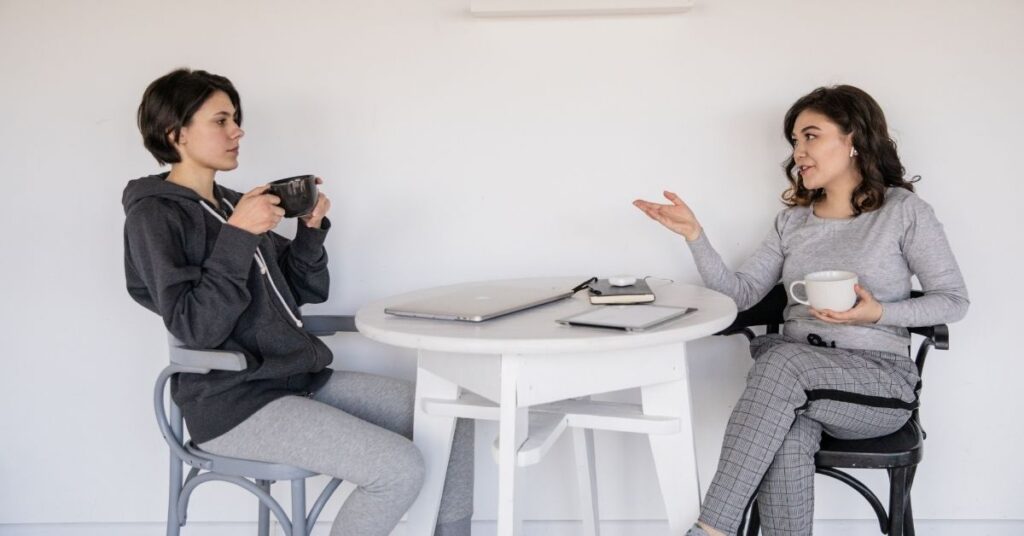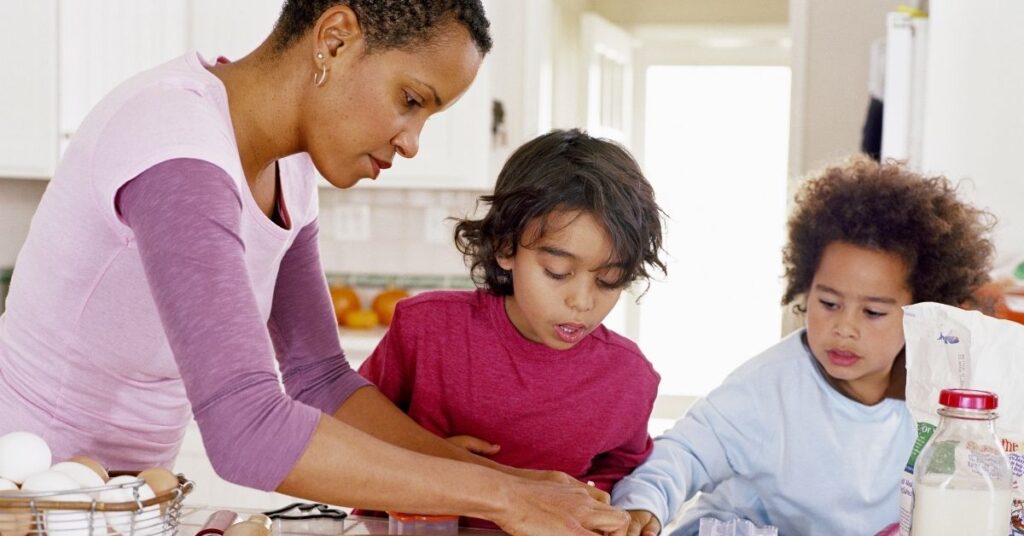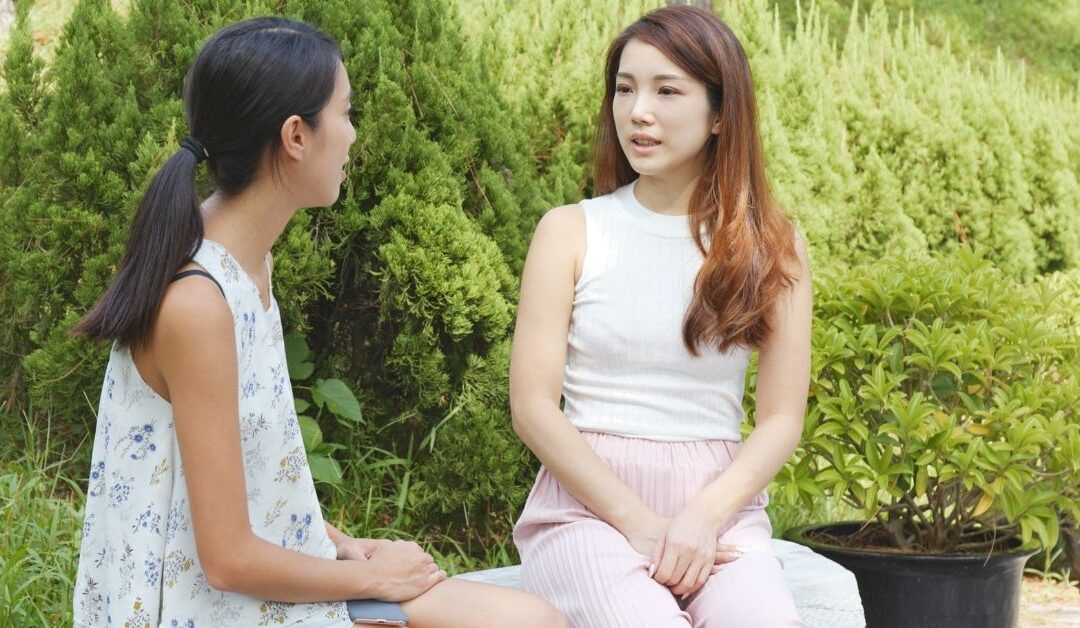Before our children were diagnosed with autism, many of us had no idea that would be the diagnosis. Most of us understood something wasn’t right, but we didn’t know what it was or the cause. Yet, after we receive the diagnosis and are with our child for years through treatments and school services, we can see the signs in others on the spectrum better. So what should you do if you believe a friend’s child may have autism?
How to approach your friend
This is such a difficult situation. No one wants to hear their child may have autism. We can all remember how that turned our own worlds upside down. There is so much information to learn quickly and many interventions to begin to help our children.
If you believe a friend’s child has autism, I suggest you first determine what your relationship is like with that friend. Are they someone who you talk to a lot and have been friends with for a long time? Can you usually have open and honest conversations about almost any topic? If so, this could be a little easier. You can most likely be more direct and open in your observations of their child.
However, if the friend is someone you know more casually or is a little more than an acquaintance, then the situation may be more difficult. You may need to be a bit more indirect in bringing up this topic.
Either way, being gentle in sharing your observations is necessary. Inviting questions is encouraged. You’ve been there before a diagnosis, and you’ve been on this journey with your child for a while. It helps greatly that you can share your own story and help them through this process.
Share your own story

The positive side of sharing your observations of another child is that you have experience with autism. I know that individuals with autism vary in their traits, however, after being on this ride with my son J for more than a decade, I’ve gotten really good at telling when someone is on the spectrum. It’s not 100 percent accurate, but I’m right a lot more times than I am wrong.
One of the best things you can do is share your own story with your friend. They may have been around when your child was diagnosed or not. Begin by sharing the early signs in your child and talk about others who may have mentioned the possibility of autism to you.
For me, my son J was in preschool. I knew in my heart that he had ADHD (which he does and received a diagnosis when he was six years old). However, autism was not on my radar at all. We started asking questions when J was two and a half years old. His behavior was not like other children’s. Our daycare center did refer us to our state’s First Steps program.
J was clumsy and falling down a lot. He also was having problems communicating and socializing with his peers at daycare. His behavior was very challenging and demanding for us as parents and his teachers at daycare. He was evaluated by First Steps, but I realized two years later that they got it all wrong. J was charismatic and engaging when they were at our home. They did note he was low toned, which was why he was clumsy much of the time. We had some exercises that we were advised to help him with at home. However, their evaluation said he was advanced in his communication and social skills. That was because they had not seen him around his peers. They based it only on their own observation with them. J usually was much more communicative and social with adults.
It wasn’t until J was in preschool that the real problems finally started being noticed. His preschool director met with me to talk about some things she was seeing in J at school. He would spend a great deal of time looking intently at different parts of a toy or turning his head to look at things outside or inside the classroom at different angles. His interactions with his peers were difficult socially. He talked excessively and wanted to direct the play instead of play with the other kids. (We saw this too all the time at home with his brother and friends in our neighborhood.) J had a horrible time with transitions, and he languished without a consistent routine at preschool. (It was a Montessori school, which wasn’t a good fit for an autistic child.)
While she referred J for an evaluation with our school system, I pursued testing for ADHD through our pediatrician who referred him to the behavioral health center that we still go to today.
Autism only came up when I was talking to the psychologist at the behavioral health center before J was tested. I noted that he talked about garbage trucks all the time. Everything was about garbage trucks, and he was so excited whenever he saw one. He watched YouTube videos and children’s DVDs about them; read every book in our local library about them; and played constantly with his toy garbage trucks. That is when she asked me if I had ever heard about pervasive development disorders and specifically autism. She wanted to test him for it.
That is my story. Sharing your story with your friend could help them see signs in their own child. Or you can note any similarities you see in your friend’s child in your own autism story.
Offer your friend support

You know how hard it was for you to go through the diagnosis process. Offer to help your friend during any point of it. If you can find childcare or if your own child is in school when your friend’s child is tested, offer to go to the appointment with them.
Having someone help throughout the process is such a relief and can help your friend know what to expect.
If your friend’s child is diagnosed with autism, assist your friend with accessing information about local resources. The two of you can also support one another through the journey.
Having a child with autism puts you in a unique position to help others. How have you approached a friend whose child you believed had autism? What recommendations would you offer others who are in this same situation? Pointing out that your friend’s child may have autism is a delicate situation. Yet, it could be one of the best things you can do for your friend and then be there to offer support if you are right. What other suggestions do you have? Leave a comment and share with others to support one another through this journey.







